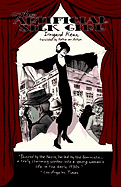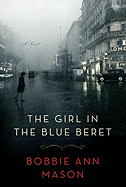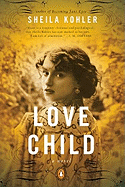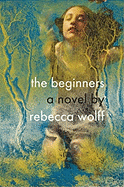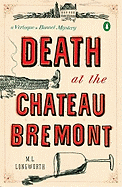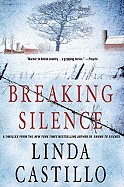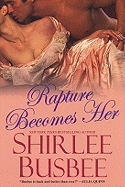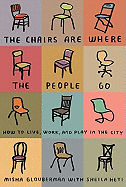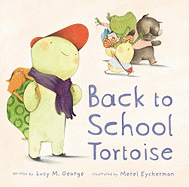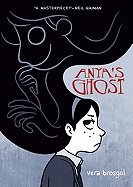Miss Independence
It's Independence Day weekend, which you knew, and a time for a little reading independence for me, which you did not. Every six months (roughly July 4th and December 25th) I give myself a holiday from keeping up with the latest reads and indulge in whatever appeals. Sometimes that's masses of P.G. Wodehouse, sometimes it's a pile of thrillers, sometimes it's a revisited classic like Anna Karenina or Far from the Madding Crowd. The titles don't really matter, of course; what matters is that I'm free to choose.
 My semiannual declaration of independence has me thinking about what that word means for the publishing industry. Don't get me wrong; I'm not about to launch into a business screed. This is a newsletter for readers. However, as readers, we should all be aware of what the various iterations of "independent" mean for books. So let me say what that word means in some contexts--and what it doesn't mean.
My semiannual declaration of independence has me thinking about what that word means for the publishing industry. Don't get me wrong; I'm not about to launch into a business screed. This is a newsletter for readers. However, as readers, we should all be aware of what the various iterations of "independent" mean for books. So let me say what that word means in some contexts--and what it doesn't mean.
An independent press means that that publishing company is privately owned and doesn't have to answer to corporate directives--but it doesn't always mean that it's small, or quirky, or necessarily more devoted to authors or readers.
An independent bookstore means that the shop is privately owned and doesn't have to answer to corporate directives--but that doesn't mean it can do whatever it wants and ignore what's going on with corporate publishers.
An independent author means that the writer has decided to pursue the path of self publishing--but that doesn't mean he or she is any more or less talented than an author who has chosen the more traditional route to publication.
In other words, independence means that everyone--not just newsletter editors--is free to choose different routes to getting books to readers. But what does it mean to be an independent reader? Well, that's up to... you. Happy Independence Day, fellow book lovers! --Bethanne Patrick



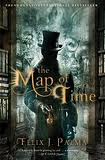 This week a book that's already delighted readers in other countries makes its U.S. debut. The Map of Time (Atria) by Felix Palma is a little steampunk, a lot paranormal and even more historical fantasy. The historical H.G. Wells is the book's ultimate star, but its multiple story arcs and many layers of ideas will make Palma's work intriguing to fans of many different genres.
This week a book that's already delighted readers in other countries makes its U.S. debut. The Map of Time (Atria) by Felix Palma is a little steampunk, a lot paranormal and even more historical fantasy. The historical H.G. Wells is the book's ultimate star, but its multiple story arcs and many layers of ideas will make Palma's work intriguing to fans of many different genres.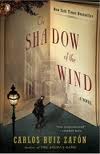 Literary mystery, try Carlos Ruiz Zafon, The Shadow of the Wind. This popular 2004 release may be the most bookish novel of suspense ever written. Its large scope and vibrant characters are similar to Palma's. While Zafon's later novels haven't lived up to this one's promise, Shadow of the Wind is big and smart enough on its own.
Literary mystery, try Carlos Ruiz Zafon, The Shadow of the Wind. This popular 2004 release may be the most bookish novel of suspense ever written. Its large scope and vibrant characters are similar to Palma's. While Zafon's later novels haven't lived up to this one's promise, Shadow of the Wind is big and smart enough on its own. Victorian England, try Charles Palliser, The Quincunx. An odd and hefty 800-page puzzle, this novel reads almost faster than the slimmest James Patterson thriller. It's the story of a young man who wants to learn about his origins--very Dickensian. The best part? The puzzle isn't solved (or is it?) until the very last page.
Victorian England, try Charles Palliser, The Quincunx. An odd and hefty 800-page puzzle, this novel reads almost faster than the slimmest James Patterson thriller. It's the story of a young man who wants to learn about his origins--very Dickensian. The best part? The puzzle isn't solved (or is it?) until the very last page. Paranormal suspense, try Haruki Murakami, Hard-Boiled Wonderland and the End of the World. It's not just the Europeans who know how to build a complicated and engaging sci-fi thriller, and it's not just the 19th century that makes a good setting. Murakami's 1993 tale of a high-tech infowar takes place in near-future Tokyo.
Paranormal suspense, try Haruki Murakami, Hard-Boiled Wonderland and the End of the World. It's not just the Europeans who know how to build a complicated and engaging sci-fi thriller, and it's not just the 19th century that makes a good setting. Murakami's 1993 tale of a high-tech infowar takes place in near-future Tokyo. Every year, David Gutowski, aka Largehearted Boy, collects as many excellent summer reading lists as possible in one blog post. This year's can be found right
Every year, David Gutowski, aka Largehearted Boy, collects as many excellent summer reading lists as possible in one blog post. This year's can be found right 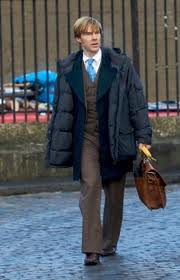
 So you've read John Le Carre's classic Tinker, Tailor, Soldier, Spy and you've watched the brilliant 1979 BBC miniseries adaptation starring Alec Guinness. Now you need to see the 2011 film, coming out in the U.K. this fall, for two simple reasons: Colin Firth. Benedict Cumberbatch. Here's the
So you've read John Le Carre's classic Tinker, Tailor, Soldier, Spy and you've watched the brilliant 1979 BBC miniseries adaptation starring Alec Guinness. Now you need to see the 2011 film, coming out in the U.K. this fall, for two simple reasons: Colin Firth. Benedict Cumberbatch. Here's the 
 Andrew Miller, author most recently of Pure, chose his
Andrew Miller, author most recently of Pure, chose his  Retired businessman Malcolm O'Hagan, "an Irish engineer with a love for great literature," is working on a plan to open the
Retired businessman Malcolm O'Hagan, "an Irish engineer with a love for great literature," is working on a plan to open the 